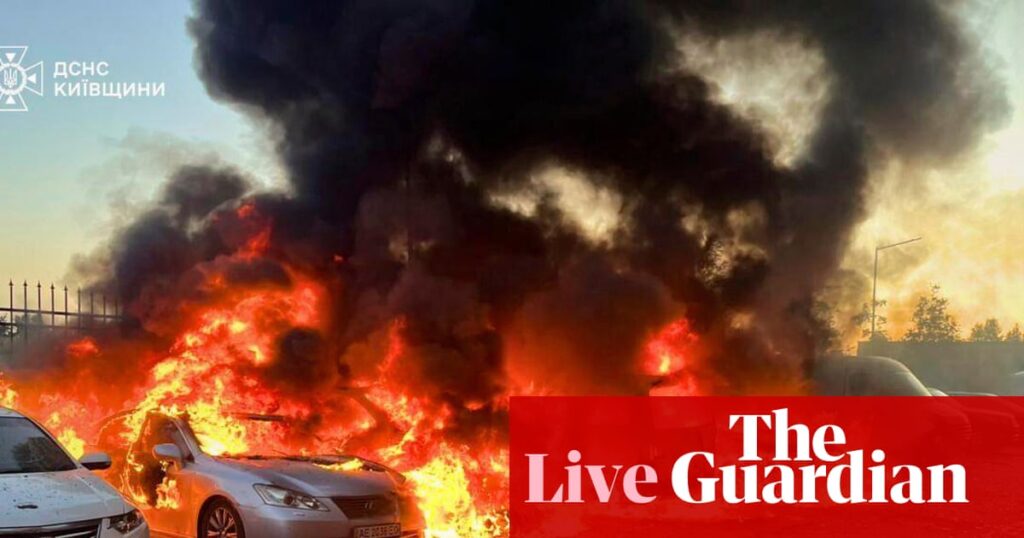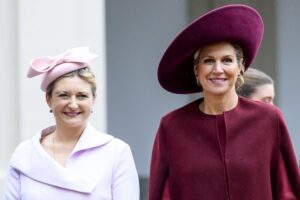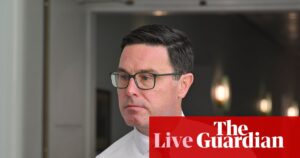
In a dramatic escalation of tensions in Eastern Europe, Poland deployed its aircraft early Saturday in response to Russian airstrikes targeting western Ukraine, perilously close to the Polish border. The Polish armed forces, a member of NATO, confirmed the operation, emphasizing the heightened state of readiness of their air defense and radar systems. This move underscores the growing anxiety among NATO countries about the potential spillover of the conflict in Ukraine.
Meanwhile, Ukrainian President Volodymyr Zelenskyy reported that Russia launched a massive attack involving 40 missiles and approximately 580 drones, resulting in three fatalities and injuring dozens. Zelenskyy condemned the strikes as a deliberate strategy to terrorize civilians and urged international allies to bolster Ukraine’s air defense capabilities and impose further sanctions on Moscow.
Impact on Ukraine and International Response
The attacks spanned across nine Ukrainian regions, including Dnipropetrovsk, Mykolaiv, and Kyiv. In Dnipropetrovsk, regional head Sergiy Lysak confirmed one death and 30 injuries, with significant damage to residential areas. Similar devastation was reported in other regions, highlighting the widespread impact of the Russian offensive.
In a related development, a Ukrainian drone attack on Russia’s Samara region reportedly killed four people. This tit-for-tat escalation illustrates the ongoing volatility and the potential for further international involvement.
“Every such strike is not a military necessity but a deliberate strategy by Russia to terrorize civilians and destroy our infrastructure,” Zelenskyy stated.
Cyber-Attacks and Airspace Violations
Compounding the chaos, a cyber-attack on a service provider for check-in and boarding systems disrupted operations at major European airports, including London’s Heathrow and Berlin’s Brandenburg. The attack led to flight delays and cancellations, affecting thousands of passengers. Collins Aerospace, the owner of the compromised software, is actively working to resolve the issue.
In another provocative move, three Russian MiG-31 fighters violated Estonian airspace, prompting NATO to scramble Italian F-35 fighters to intercept the jets. Estonia and NATO officials condemned the incursion as a dangerous provocation, while Russia denied any wrongdoing, claiming adherence to international airspace regulations.
Political Maneuvering and Economic Sanctions
As the conflict intensifies, political leaders are exploring economic measures to pressure Russia. UK Chancellor Rachel Reeves announced plans to consider using frozen Russian assets to fund Ukraine’s war efforts. This proposal aligns with European Commission President Ursula von der Leyen’s suggestion of leveraging Russian assets for Ukrainian support without breaching international law.
President Zelenskyy is set to meet former U.S. President Donald Trump at the United Nations in New York, where he plans to urge for stricter sanctions against Russia. Zelenskyy expressed frustration over the slow pace of international action and emphasized the need for immediate and decisive measures.
“If the war continues and there are no moves towards peace, we expect sanctions,” Zelenskyy remarked, highlighting the urgency of the situation.
Historical Context and Future Implications
The current conflict echoes historical tensions in the region, reminiscent of Cold War dynamics where Eastern Europe was a battleground for geopolitical influence. The involvement of NATO and the strategic positioning of military assets reflect a broader concern about regional stability and the potential for a wider conflict.
Experts warn that without a concerted international effort to de-escalate the situation, the conflict could lead to further destabilization in Eastern Europe. The ongoing military engagements and cyber threats underscore the multifaceted nature of modern warfare, where traditional and digital battlegrounds are increasingly intertwined.
As the situation unfolds, the international community faces the challenge of balancing deterrence with diplomacy, ensuring that efforts to support Ukraine do not inadvertently escalate tensions with Russia. The coming weeks will be critical in determining the trajectory of this conflict and the broader implications for global security.






